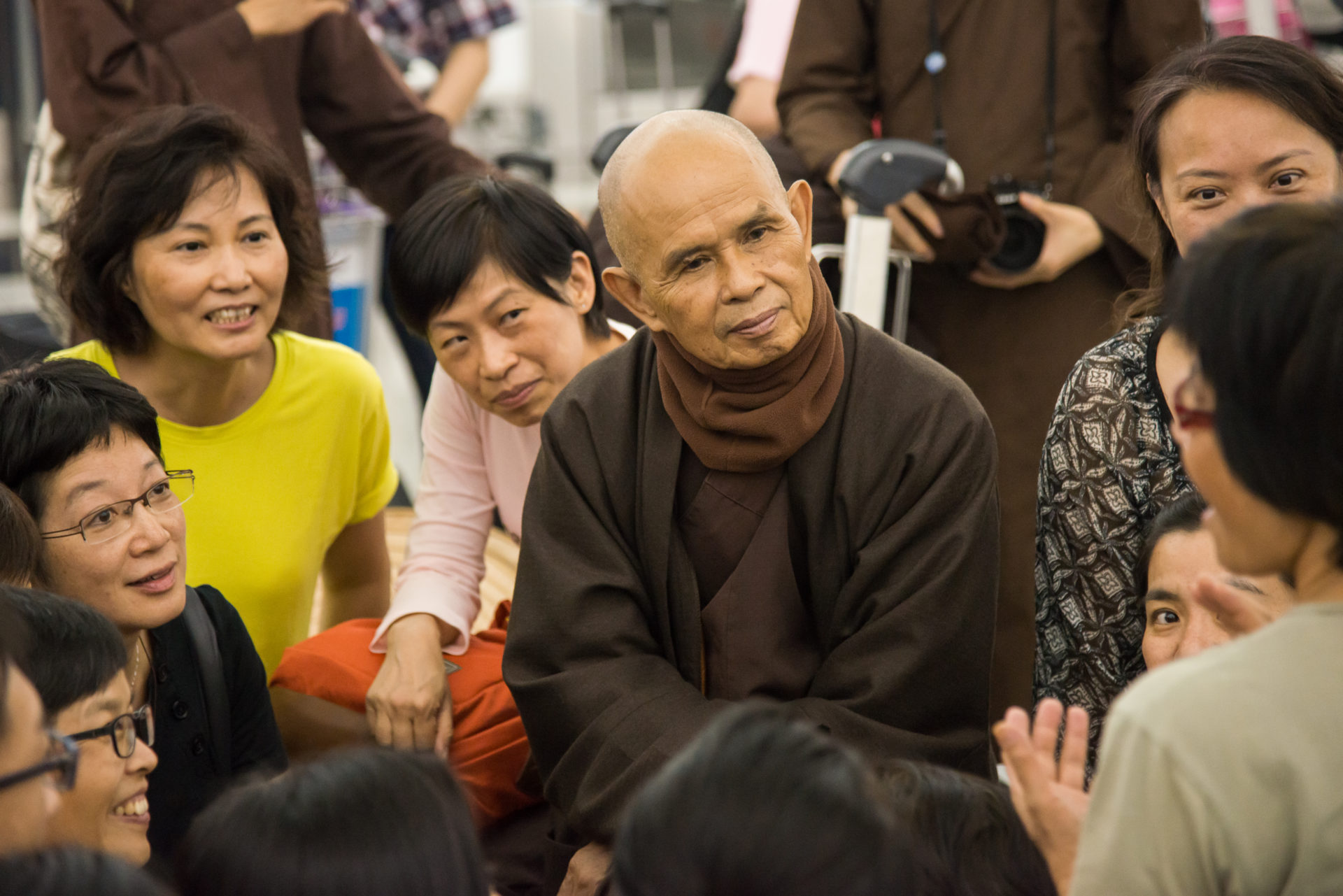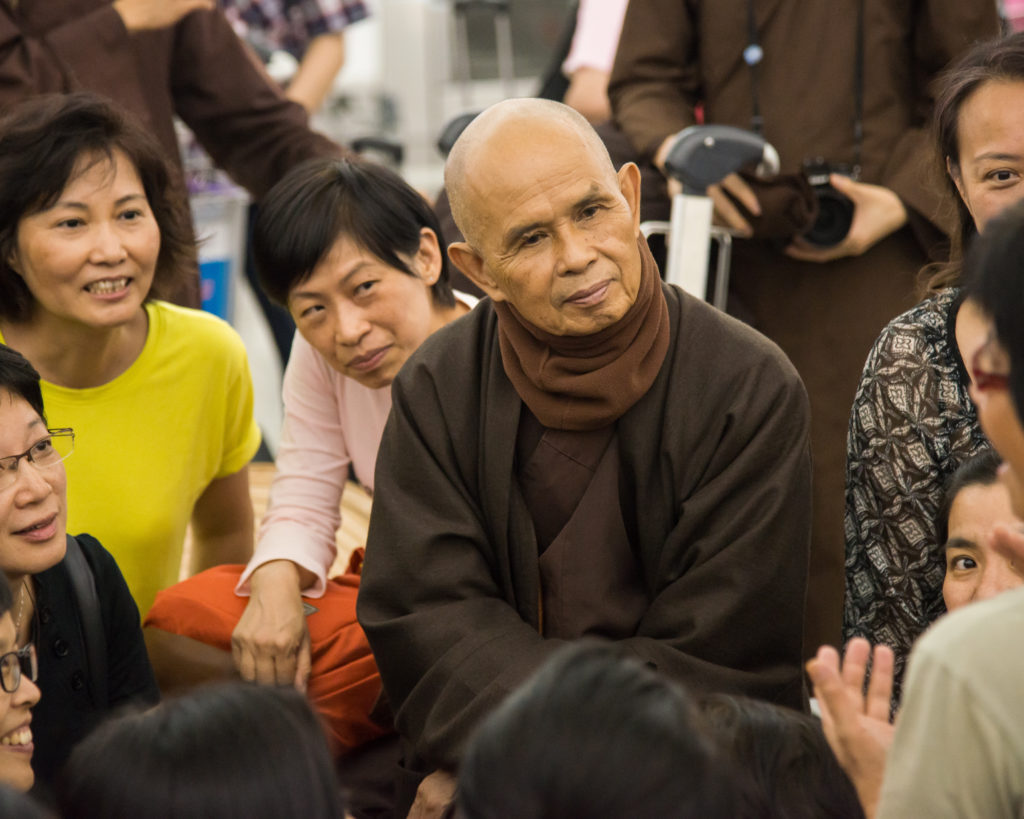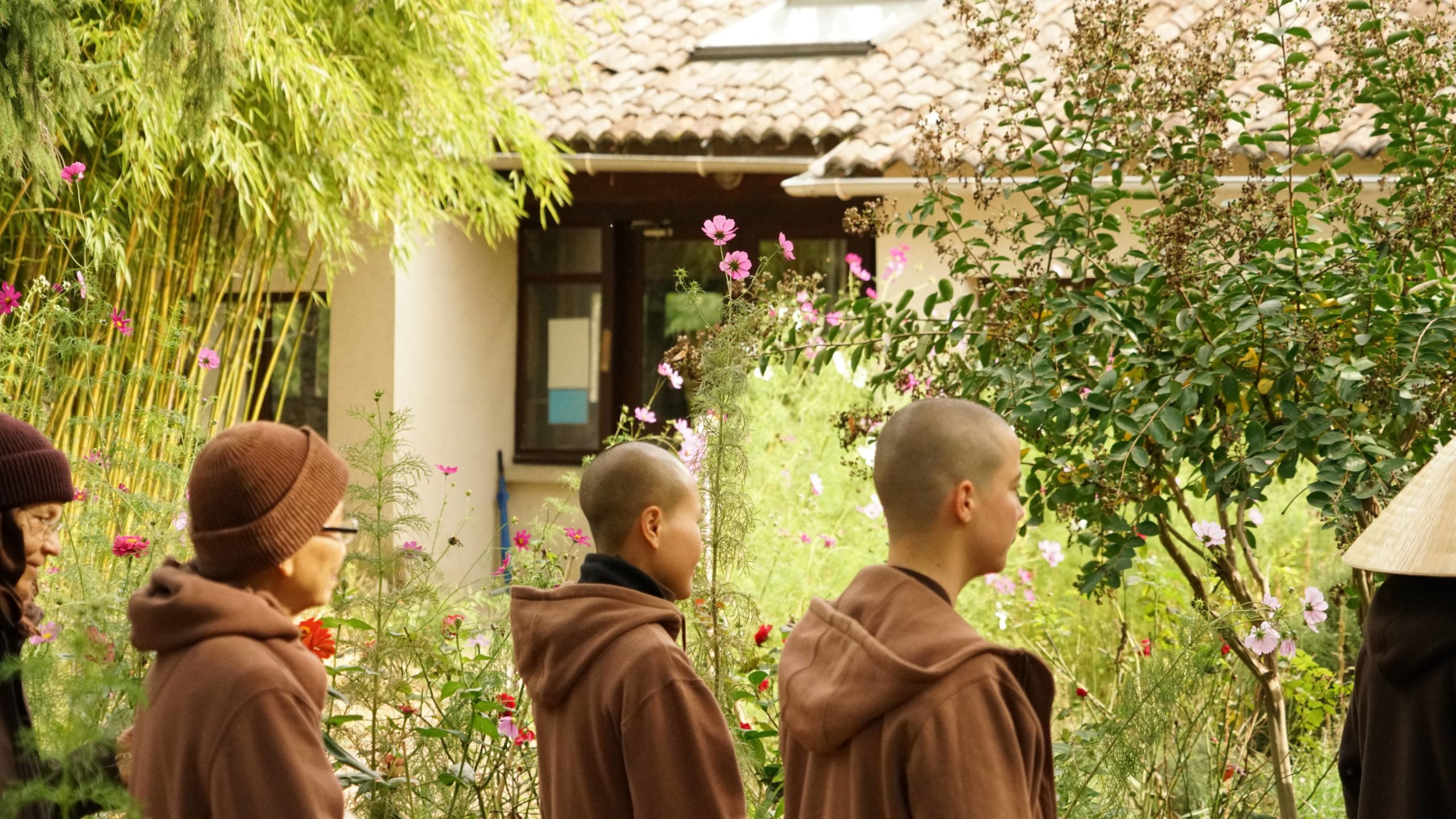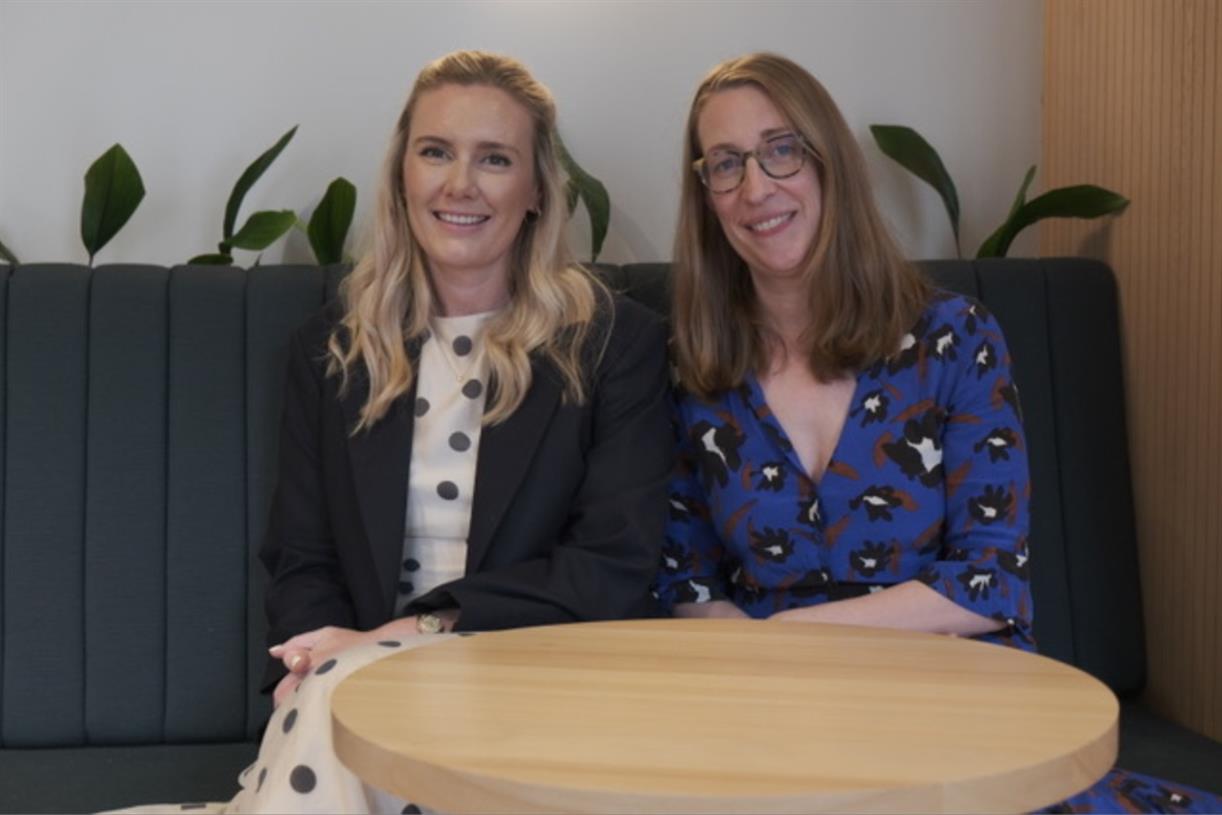Reconcile
In this article we explore Sr Chan Duc's sharing on how to reconcile through the practices of Beginning Anew, Nonviolent Communication and Forgiveness.

The Practice of Beginning Anew
In our practice we have methods of Beginning Anew, of deep listening, of loving speech, and these things have been very helpful to many people. We always teach the Beginning Anew practice in our retreats, especially for the children and teenagers. They learn how to do Beginning Anew with their parents. It is a very wonderful practice and brings a lot of relief to the families. This is something that is so necessary in the world. Similar to the stress reduction and relaxation practices, it is something that needs to go out into the world in many ways to support a collective awakening.
We really need to know how to reconcile, how not to fight, but how to listen and speak
 We are all the leaves of one tree
We are all the leaves of one treeNonviolent Communication
Just as here in Plum Village we have one way of bringing this out into the world, there is another way which is called Nonviolent Communication. It was created by a Jewish man named Marshall Rosenberg. One day he was taking a taxi in New York. He got into the taxi and the driver started pouring out all his anger. He was very angry with Jewish people. He was saying many discriminatory racist things about Jewish people and Marshall Rosenberg just listened. Then he had an intuition and he thought ‘this taxi driver is suffering a lot and there’s no one who can listen to him’. He took time to listen to him and said ‘you obviously have had very difficult times with Jewish people’. The taxi driver started pouring out all the difficult times that he had, mainly with his own family. After listening Marshall Rosenberg had a realisation:
When people use violent words with us, there is a way for us to be able to listen and respond so that the violence can come to an end – the violence can be transformed
 Thich Nhat Hanh listening deeply to his students in Hong Kong, 2013.
Thich Nhat Hanh listening deeply to his students in Hong Kong, 2013.From this realisation he developed a way of listening to people. It is a little bit different from the Beginning Anew practice in Plum Village because it is not in the background of meditation. It is just for people who live at home and have difficulties, but it is still very helpful. Although it’s not the same as Plum Village, we support it, as it can help a lot to reduce the anger and violence in the world.
Looking Deeply
When we do Beginning Anew it involves quite a lot of looking deeply. When we come and sit with somebody with whom we have a problem, someone who makes us suffer, we do this in order to listen deeply. Nonviolent Communication also talks a great deal about being present.
You have to be present for the other person and not let any of your prejudices and your perceptions get in the way
 Walking meditation can help us cultivate presence
Walking meditation can help us cultivate presenceYou just empty yourself and be there completely for the other person and then after that you just listen.
In Plum Village we say you listen not only to what the other person is saying but also to what is left unsaid. That is to say, that although the other person is very hurt and very annoyed there is something else lying underneath and you want to be able to understand what is lying underneath. You want to go more deeply into that to understand the suffering of the other person.
When you finish listening you don’t say anything. Your response is ‘thank you very much for sharing’. That’s about all you say. You can also say ‘I am sorry I hurt you so much’ but you don’t say any more than that. In Nonviolent Communication they have a way that is called ‘guessing’. You have to guess what the other person is feeling. Having listened to the other person you guess what they feel. You guess what they need and then you say, ‘oh I guess you are feeling this or I guess that you need this’.
We don’t do it like that. We listen deeply and from that we have an understanding. We may feel we don’t need to say anymore. We understand. We can look at that person, we can smile at that person and that is enough. But if we feel that the other person has a very, very wrong perception and a week later we feel there is something I can say or do in order to help that person let go of their wrong perception, we can do that later, on another day.
Forgiveness
Sister Chan Khong encouraged us on New Year’s Eve to ‘forgive one person’. The person I wanted to forgive was actually myself. I thought ‘who do I need to forgive?’. I couldn’t think of anyone but then I thought maybe I need to forgive myself, so I practice like that.
We also realized something else about forgiveness. You can say ‘oh, I forgive you’ but do you really forgive? It’s easy to say ‘I forgive you’ but deep down do you really forgive – that is another question. Alternatively you say to somebody ‘forgive me’, but I think it’s a lot to ask of somebody.
In order to really forgive I have to understand. If I don’t understand the suffering that you were going through when you did that, it is very difficult for me to forgive you
So when I want to forgive myself it’s the same. I need to understand the suffering that I was going through. I need to understand my lack of understanding, my wrong perceptions and when I can understand those things then I can forgive myself.

 KickT
KickT 
































